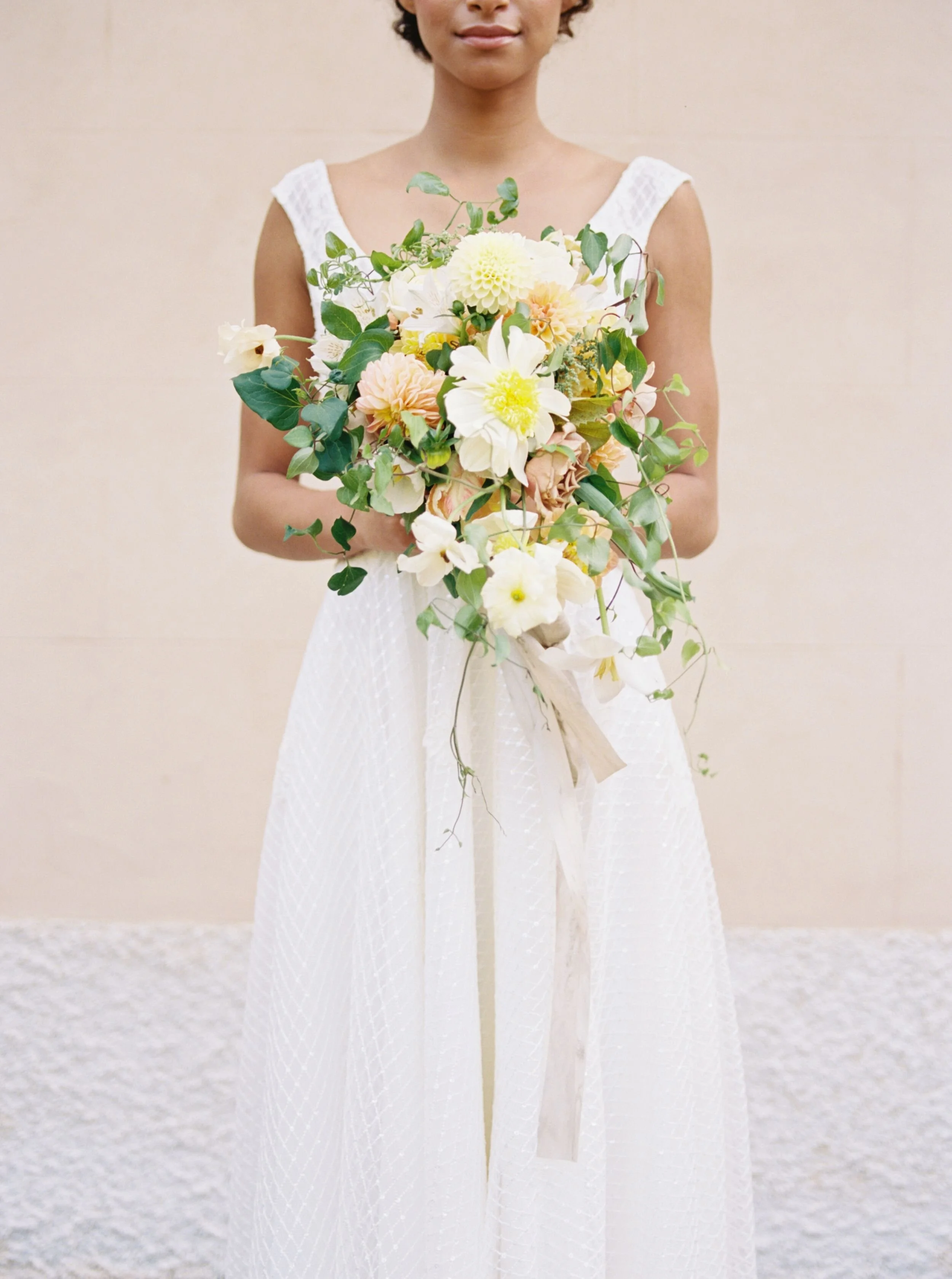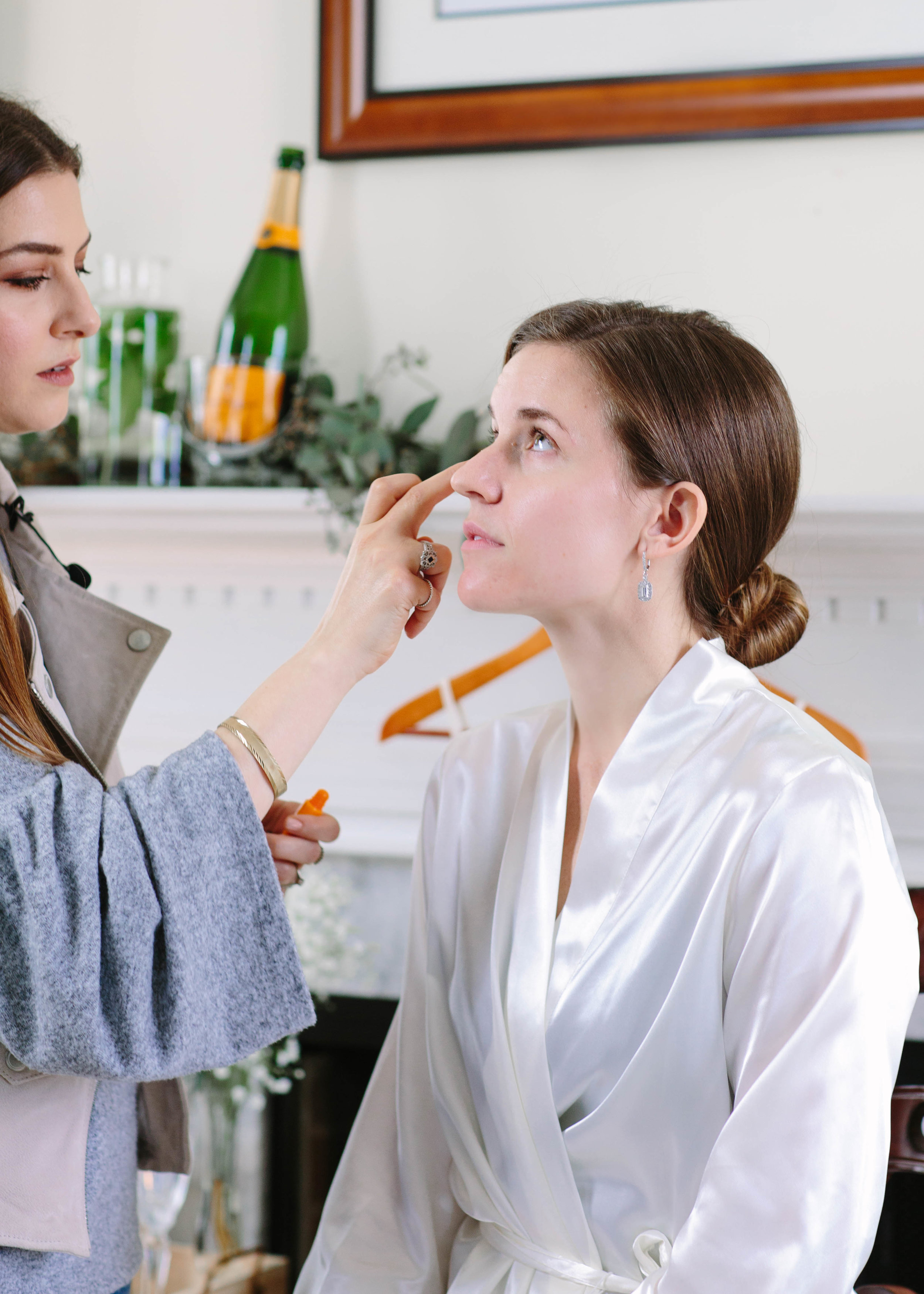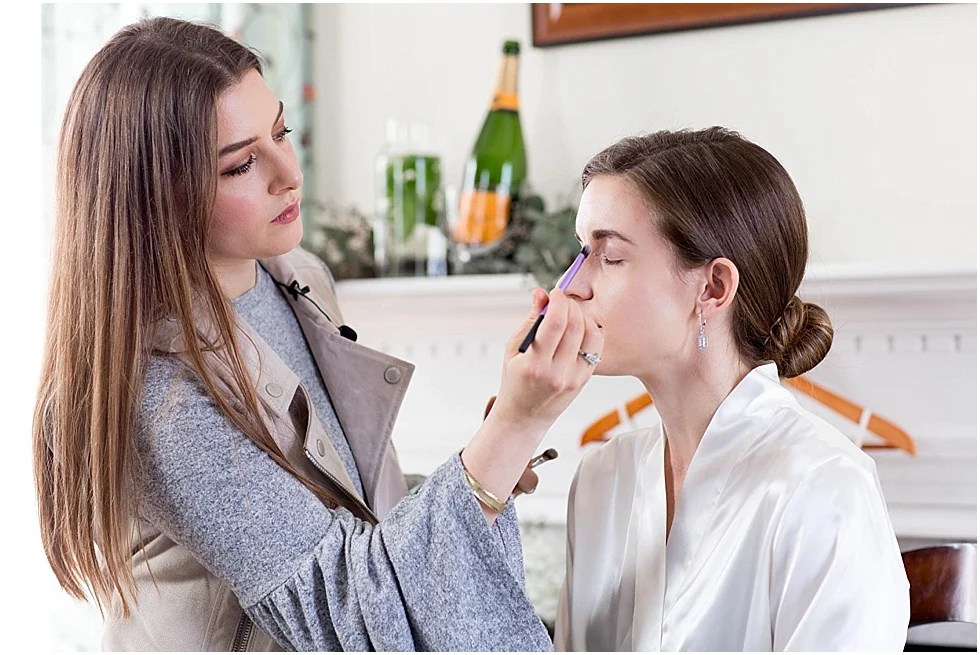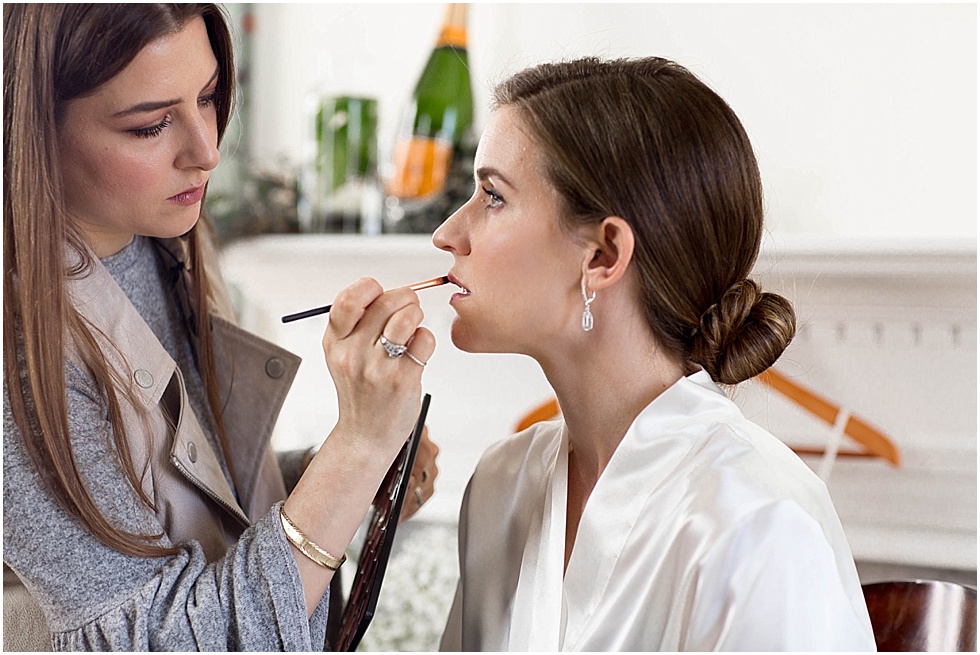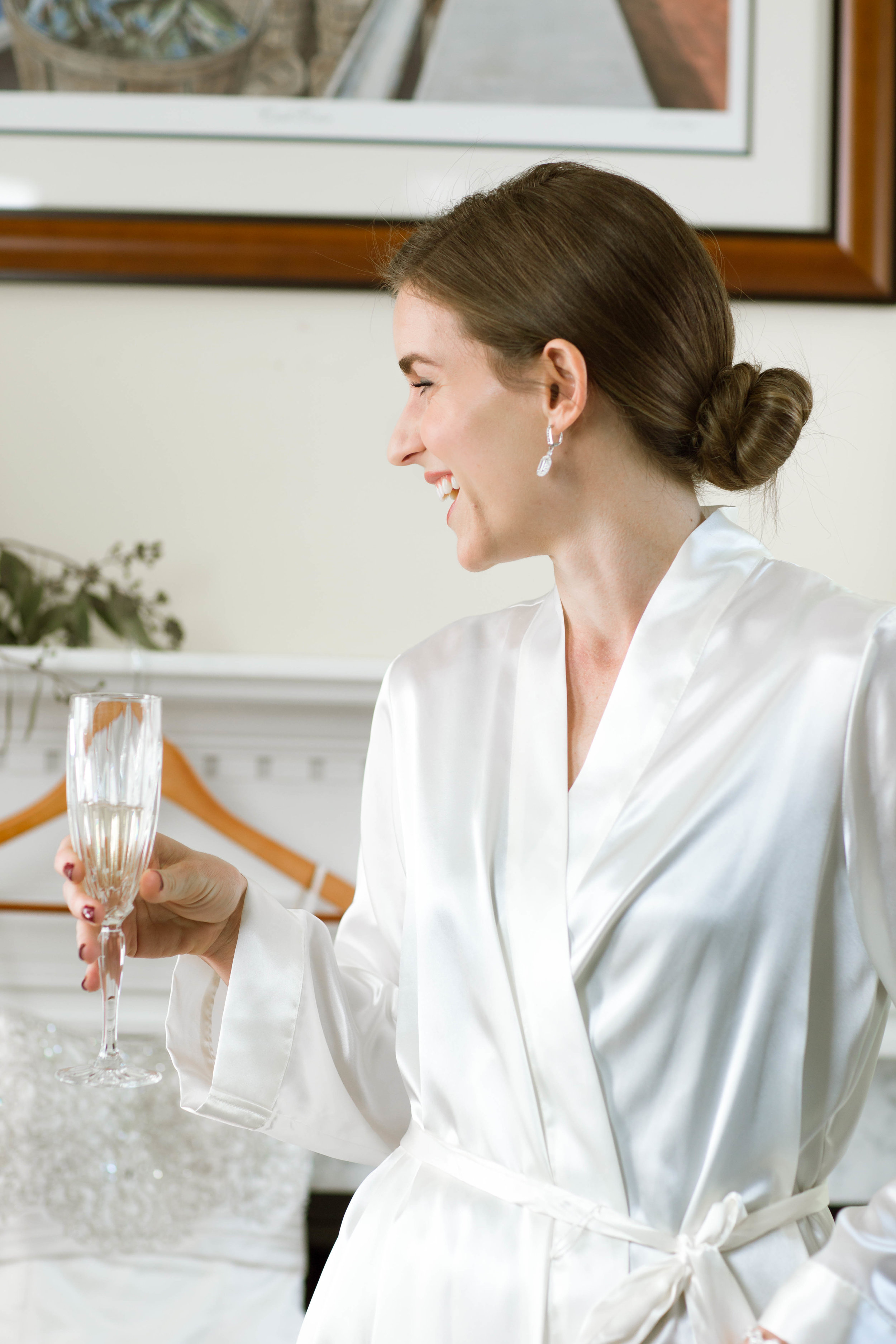To the Bride Who is Not a "Girly Girl."
/EMILY LOGIN
I have always struggled with my femininity.
When I was little I played with dolls and loved stories with princesses and happily ever afters. I wore pink (sometimes) and I liked wearing my hair in pigtails (mostly because it was my dad’s favorite hairstyle).
PHOTOGRAPHY: Ashley Eileen Floral Design
Once I got to high school, however, I started feeling self-conscious about my apparent lack of “girliness.” A lot of other girls wore makeup, had highly coordinated outfits, and enjoyed shopping. To me, shopping was a chore.
In college, it got worse. It seemed that everyone was good at arranging bouquets, decorating their dorm rooms, and calligraphy or painting. I felt like everything “girly” I tried to do failed and fell short.
The months after graduation, I was engaged and found myself planning a wedding. I started doing all the things you are “supposed” to do once you get engaged: I made a haphazard Pinterest board with lots of glamour shots, started bookmarking gowns, and looked for the perfect bridesmaid dresses with my friends.
The whole time though, I felt overwhelmed and frustrated because I felt that, try as I might, I could not figure out which colors matched well together, which flowers were best in July, or what dress shape fit well on my body type.
I was too ashamed and self-conscious about the fact that the “girly” knowledge that seemed to come naturally to a lot of my friends made no sense to me. So what did I do? I ignored all of the responsibilities of wedding planning for months.
I kept pushing off choosing colors and designing centerpieces and focused on the practical organizational tasks that I knew I could do well: typing out the guest list; researching the cheapest options for printing invitations. I ended up wearing my mom’s wedding dress, foregoing a videographer, and letting my bridesmaids pick their own dress style. I tried to play off these choices as sentimental, economical and courteous, respectively.
But deep down, I knew I did not want to face the fact that I felt like a failure of a bride, because I did not think I was good at things that I felt were traditionally labeled “feminine.”
Fast forward almost three years into my marriage. At this point, I have been in several close friends’ weddings and witnessed a handful of others. I have watched all of the brides that I have walked with sort through and prepare each and every painstaking detail, and I have to admit that I didn’t do a lot of the same little details and preparations that my friends did.
I have to come to grips with the cold hard truth of what actually happened at my own wedding. I did not plan a lot of the details. If I am being perfectly honest, then I have to admit that my mom and my little sister planned my wedding. I came up with the broad strokes, but had nothing to do with most of the decor and fanciful details. They took the reins when they saw that I froze and choked, and just got my approval instead of my permission.
I had to grieve the loss of the image I had of myself as a girly bride. I simply am not and was not a super girly person. It has taken a lot of prayer and healing to be able to finally admit this to myself and own this truth about who I am.
That is not me, and that is ok. Once I finally was honest, I was able to start to love the woman that God made me, with all of my beauty in its own way. In recent years, I have started learning more about makeup and clothing, but not because it was what I felt I needed to do to be a woman.
Only when I found confidence in the woman God made me was I able to then explore some of these more conventionally feminine arts, simply because I wanted to for myself and my future daughters. But before I could get there, I had to learn to love the not-girly version of me first—because that is the me that I know God made beautiful and womanly and feminine.
My femininity is not defined by whether or not I am able to do a Dutch Braid or the perfect smokey eye. My femininity is defined by my Lord and God who made me His own. Period.
So for any brides out there who feel helpless because you don’t feel girly enough, know that you are not alone. I was there, and I feel your pain.
I understand the struggle and the grieving process that can come with finally admitting that the traditionally feminine arts are not your strong points. Allow yourself to grieve this image of yourself as a girly girl, and you’ll be better able to understand the authenticity of who you are as a woman.
Once you have fully humbled yourself and accepted the beautiful you that God created, only then can you realize how to survive the wedding planning phase of your life: by asking for help! By allowing my mom and my sister and my bridesmaids and friends to help me plan my wedding, I was able to focus on my fiancé, on our relationship, on our future goals, and on the organizational planning pieces of our wedding that I knew I could do well.
About the Author: Emily Login is a wife and mother of one living in Maryland. She is a special education teacher at a Catholic school and runs a small online used bookstore called Lazarus Catholic Books.




